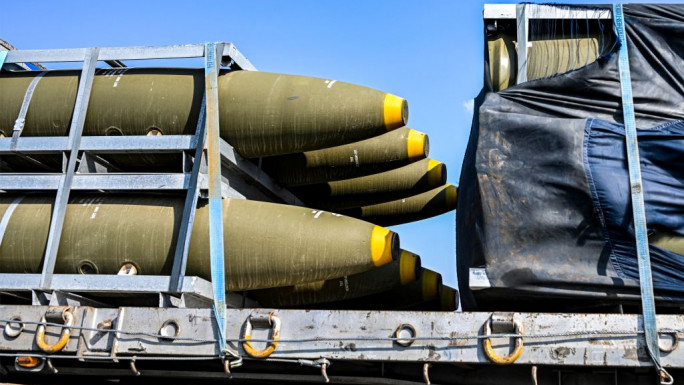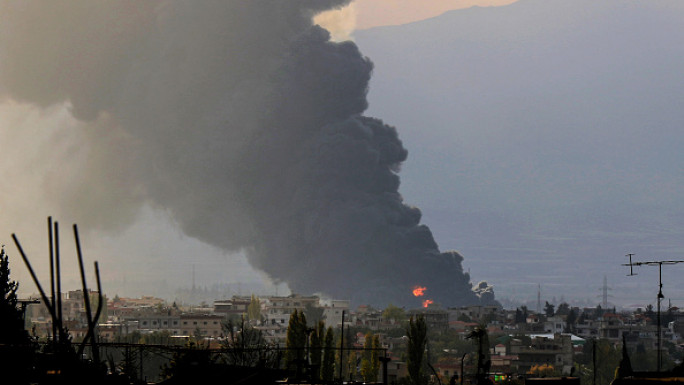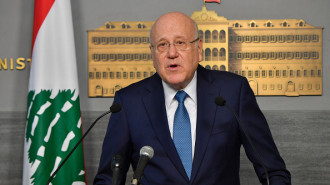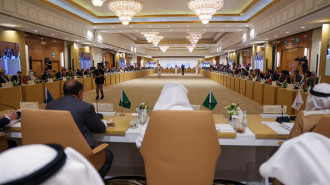Saudi Arabia beheads 100th person this year
Saudi Arabia beheads 100th person this year
Saudi Arabia beheads a Syrian accused of drug smuggling, the 100th execution this year and an increase on numbers last year.
2 min read
Saudi men perform their country's traditional swords dance called 'Arda' [Fayez Nureldine/AFP/Getty Images]
Saudi Arabia has beheaded a Syrian drug trafficker and a national convicted of murder, taking to 100 the number of executions in the kingdom this year.
Executions have surged in number this year compared with the 87 recorded by AFP for all of last year. But it is still far below the record 192 which rights group Amnesty International said took place in 1995.
Syrian Ismael al-Tawm smuggled "a large amount of banned amphetamine pills into the kingdom", said an interior ministry statement carried by the official Saudi Press Agency. He was beheaded in the northern region of al-Jawf.
A separate statement said that Rami al-Khaldi was convicted of stabbing another Saudi to death and was executed in the western province of Taif.
Drug and murder convictions account for the bulk of executions in Saudi Arabia.
Amnesty said the use of the death penalty for other than the "most serious crimes" - premeditated killings - violates international law.
Saudi judicial proceedings "fall far short" of global norms of fairness, according to the rights watchdog.
In April, Indonesian domestic worker Siti Zainab was beheaded in Medina after being convicted of stabbing and beating to death her employer in 1999.
Human rights groups criticised the sentence asserting that Ms Zainab had been acting in self-defence and might also have been mentally ill.
Drug trafficking, rape, murder, armed robbery and apostasy are all punishable by death under Saudi Arabia's legal code.
Executions have surged in number this year compared with the 87 recorded by AFP for all of last year. But it is still far below the record 192 which rights group Amnesty International said took place in 1995.
Syrian Ismael al-Tawm smuggled "a large amount of banned amphetamine pills into the kingdom", said an interior ministry statement carried by the official Saudi Press Agency. He was beheaded in the northern region of al-Jawf.
A separate statement said that Rami al-Khaldi was convicted of stabbing another Saudi to death and was executed in the western province of Taif.
Drug and murder convictions account for the bulk of executions in Saudi Arabia.
Amnesty said the use of the death penalty for other than the "most serious crimes" - premeditated killings - violates international law.
Saudi judicial proceedings "fall far short" of global norms of fairness, according to the rights watchdog.
In April, Indonesian domestic worker Siti Zainab was beheaded in Medina after being convicted of stabbing and beating to death her employer in 1999.
Human rights groups criticised the sentence asserting that Ms Zainab had been acting in self-defence and might also have been mentally ill.
Drug trafficking, rape, murder, armed robbery and apostasy are all punishable by death under Saudi Arabia's legal code.





 Follow the Middle East's top stories in English at The New Arab on Google News
Follow the Middle East's top stories in English at The New Arab on Google News


